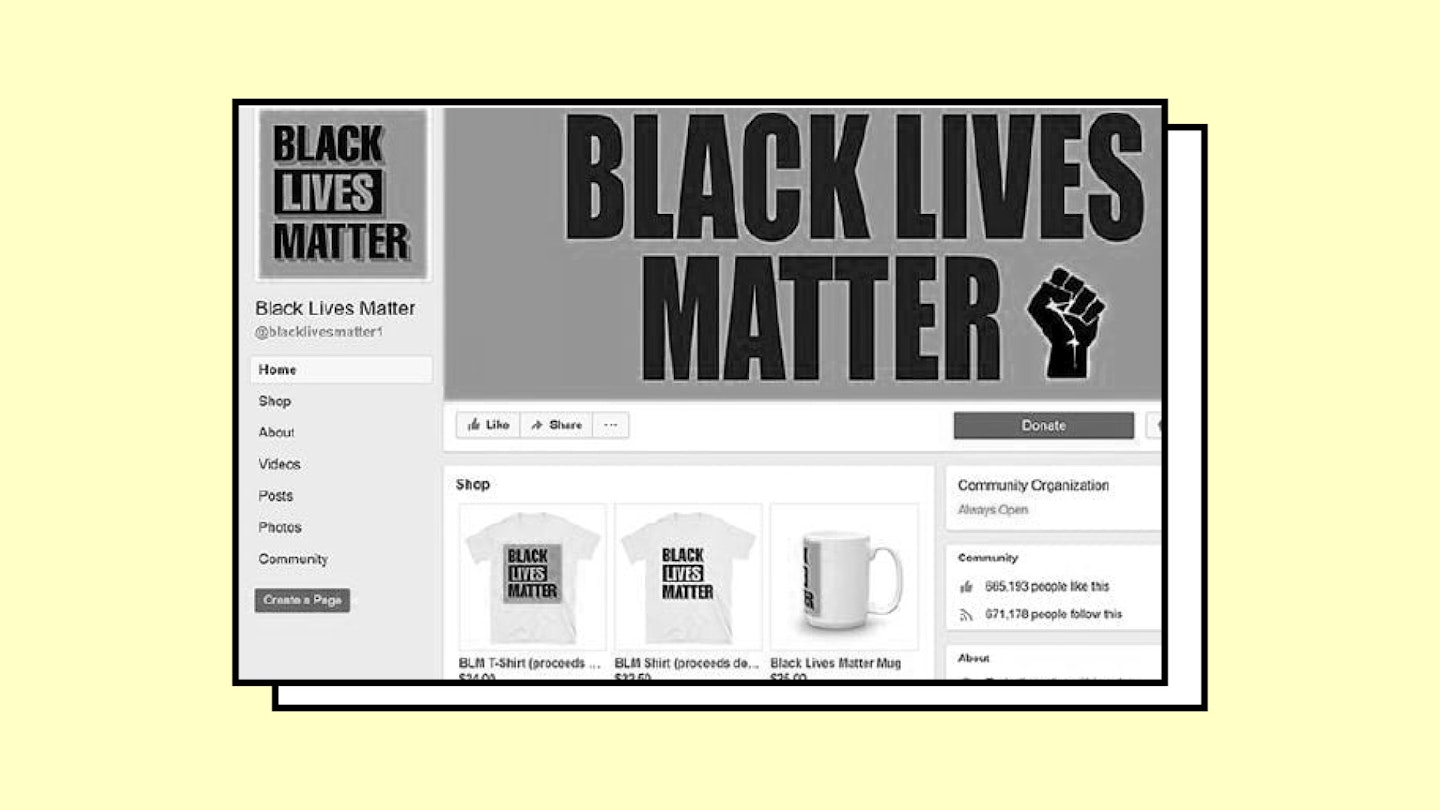A Black Lives Matter Facebook page has been exposed as a scam. The wallpaper looked legitimate, a yellow background with the font we’ve all come to associated with the global movement which campaigns against violence and systemic racism. It bore the Black Lives Matter logo in the bottom right corner of its banner, like a seal of approval and even sold merchandise in the form of t-shirts and mugs. The page also actively solicited donations from people who supported and sympathized with the Black Lives Matter cause as founded by Patrisse Cullors, Opal Tometi and Alicia Garza, through the familiar blue ‘donate’ button feature.
However, CNN are reporting that this page was, in fact, being run by Ian MacKay – a white Australian National Union of Workers official. MacKay has since been suspended from his job but denies the accusations against him.
CNN saythey have evidence that some of the money raised by the page over the last year was ‘transferred to Australian bank accounts’ and not donated to Black Lives Matter. Since CNN's report went live, the Facebook page and its associated fundraising campaigns have been suspended.
It’s worth pointing out that the official Black Lives Matter Facebook page has around half of the number of followers that the fake page had – 319,000. With this in mind, it’s perhaps easy to see how people using the social network may have conflated numbers with authenticity and assumed that the fake page was the one to follow and donate to purely because of its numbers.
All of this undoubtedly raises further questions about trust on Facebook at a time when the platform and the content we see on it are already facing serious (and arguably long overdue) scrutiny.
As if the existence of a fake fundraising page wasn’t alarming enough, CNN say that Facebook didn’t initially take the faux Black Lives Matter page down when presented with the news organisation's findings saying that it didn’t violate ‘Community Standards’. Only after a week of emails and calls, say CNN, did Facebook suspend the page.
Patrisse Cullors is reported to have told CNN that Black Lives Matter had raised concerns about the fake page with Facebook ‘some time ago’ because the movement suspected the page was a scam. No action was taken with Facebook’s internal machinations and protocols once more throwing up questions than offering up answers when it comes to how sure we can be about the veracity of the things we see on the platform.
Fake news – from poor quality to extremist, sensational to conspiratorial content - is generally associated with the hard right. Indeed, earlier this year a University of Oxford study found that the sharing of fake news is ‘a rightwing thing’ with Trump supporters consuming the highest volume of ‘junk news’ on Facebook and Twitter.
The revelations about this fake Black Lives Matter page speak to is potentially an even bigger problem than the scourge of fake news on social media. How can we tell the difference between fake and real fundraising pages? How will Facebook distinguish between the two and police their network accordingly? Unlike fake news, a faux fundraising page may not invite immediate skepticism.
This news comes just after Facebook’s co-founder,Mark Zuckerberg, addressed US Congress in the wake of the Cambridge Analytica data scandaland admitted to making ‘big mistakes’ while maintaining that ‘Facebook is an idealistic and optimistic company’ which he sees as a ‘positive force in the world’.
Elections are imminent around the world over the next two years, with particularly significant ones coming up in Mexico, Brazil and Pakistan. Zuckerberg has said that Facebook will ‘hire thousands more people’ to verify pages and advertisers on the site ahead of these politician events but, at a time when people are asking more question than ever about what authenticity looks like online, will this be enough? This is just the latest in a long line of stories (see Cambridge Analytica) which serve to remind us that very little – whether that’s what happens to our data or who is behind the material we see in our feeds - is as it seems on Facebook.
Follow Vicky on Twitter@Victoria_Spratt
This article originally appeared on The Debrief.
